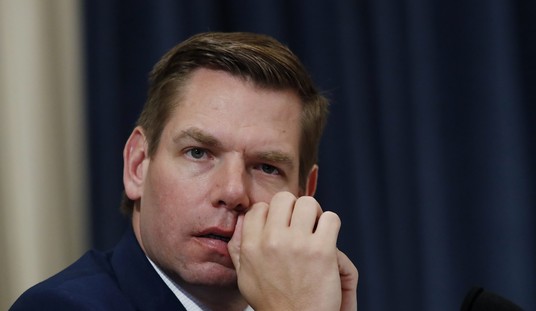=========
=========
Promoted from the diaries by streiff. Promotion does not imply endorsement.
=========
=========
By Thomas A. Hemphill
The “tech titans”—Amazon, Apple, Facebook, and Google—have caught the unwanted attention of the federal government, with “techlash” hearings held over the past two years garnering much media fanfare on Capitol Hill.
Ample fuel for techlash is found in allegations of facilitating fake news, violating consumer privacy and security, failing to shield users from harmful content, suppressing conservative opinion, involvement in the Russian disinformation campaigns during the 2016 U.S. presidential election, and engaging in anti-competitive abuses due to their monopoly power.
Many of the criticisms against the tech companies are of the non-competition variety, such as bias against certain political candidates and opinions, enabling fake news, privacy and security lapses, etc. However, when it comes to alleged abuses of “monopoly power,” these market transgressions are the bailiwick of U.S. antitrust law and policy enforcers.
In June, The Wall Street Journal reported that two federal antitrust authorities agreed to initiate inquiries into whether the tech titans actively discouraged competition and limited consumer choice. According to the Journal, the U.S. Department of Justice’s Antitrust Division will investigate Google and Apple, and the Federal Trade Commission (FTC) will investigate Amazon and Facebook.
In February, FTC Chairman Joseph Simons established a task force to examine the competitive conduct of major tech firms and determine whether they are violating antitrust statutes. In addition, the task force—which is in the information-acquiring stage—will examine previous mergers and acquisitions in the tech industry that could potentially be undone. In 2013, FTC closed an antitrust investigation of Google. The investigation focused on whether Google favors certain search results, with the agency suggesting there was insufficient proof Google’s actions stifled competition.
In addition, the U.S. House of Representatives Judiciary’s Subcommittee on Antitrust, Commercial, and Administrative Law announced in June a bipartisan investigation of the tech industry, focusing on Amazon, Apple, Facebook, and Google. The Subcommittee plans to hold congressional hearings, receive testimony from tech company executives, and subpoena internal corporate documents.
Sen. Elizabeth Warren (D-MA), a contender for the 2020 Democratic presidential nomination, has proposed classifying certain tech giants as “utilities” and banning them from owning any participants on the digital platforms. She also favors undoing previous tech industry mergers or acquisitions, including Facebook’s acquisition of Instagram and Google’s purchase of DoubleClick.
Warren has helped to accentuate an emerging progressive movement—called the “New Brandeisians,” in honor of former U.S. Supreme Court Justice Louis D. Brandeis, who decried the “curse of bigness”—that favors reviving aggressive antitrust enforcement, especially against dominant tech industry firms.
The New Brandeisians argue tech titans employ predatory pricing strategies to grow their market share, expand into new industries, and achieve eventual market dominance. A key component of their argument is that dominant digital platforms provide essential facilities (“utilities”) and have a duty to provide competitors’ access to any resources over which they possess a natural monopoly. They are attempting to reinsert the Structural Approach of antitrust thought, which viewed government intervention as improving economic performance and furthering the social objectives of limiting economic power, which prevailed from the 1930s to the 1960s into existing antitrust policy, thus expanding antitrust policy beyond economic efficiency and consumer welfare to consider total welfare.
Today, the dominant “Chicago School” of antitrust thought—which influenced antitrust policy in the 1970s and 1980s—views the objectives of antitrust policy as static economic efficiency. In other words, they are maximizing consumer welfare, arguing that competition is the best means of achieving efficiency. Since the 1990s, however, a new approach has emerged, focusing on firm opportunities for strategic behavior, with business practices evaluated based on their effects on static and dynamic efficiency under a rule-of–reason analysis (the exception being egregious per se violations, such as price fixing).
In spite of support from liberals and conservatives, ranging from Senators Warren and Bernie Sanders (I-VT) to Ted Cruz (R-TX) and Josh Hawley (R-MO), it will take years for Congress to come to a bipartisan agreement on new antitrust legislation addressing the tech industry. In the interim, the tech industry will utilize its deep financial pockets to engage in intense lobbying efforts on Capitol Hill, with presidential administrations, and in congressional districts nationwide.
As to the Department of Justice and FTC investigations, the finest antitrust law firms will superbly represent the tech titans, and likely keep them from facing any real consequences. And it’s unlikely the nascent New Brandeisians’ reform agenda will gain any real momentum in the near future.
Thomas A. Hemphill ([email protected]) is the David M. French Distinguished Professor of Strategy, Innovation, and Public Policy for the School of Management at the University of Michigan at Flint.














Join the conversation as a VIP Member